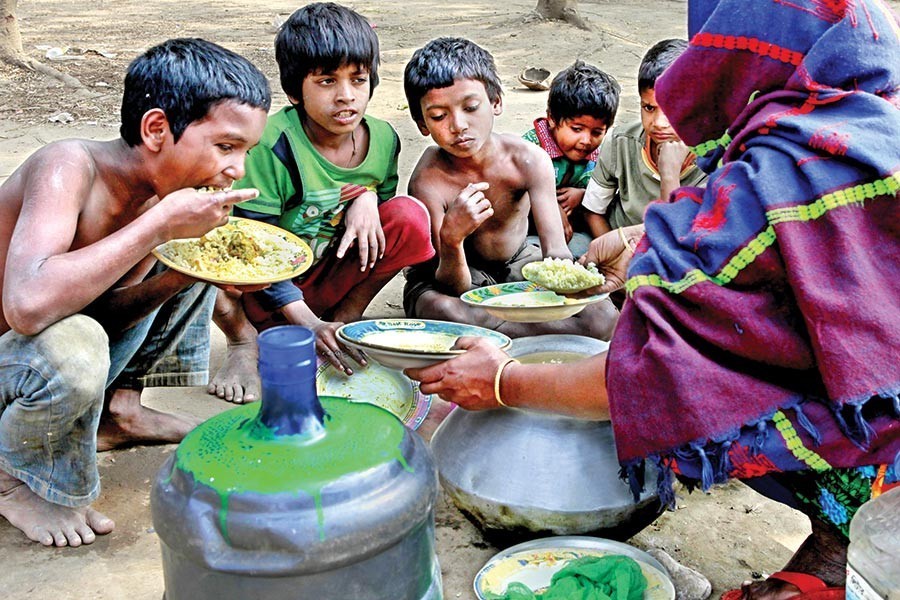Loss of jobs and income erosion combined together to push 16.38 million people below the poverty line during the first wave of the pandemic between March and September last year. During the same period 0.4 million migrant workers also lost their jobs. A virtual dialogue jointly organized by the Centre for Policy Dialogue (CPD) and the Bangladesh Institute of Labour Studies (BILS) on the occasion of releasing the key findings of a new study titled 'Recovery of the Labour Market During Covid-19: Role of Trade Union' was informed that more than 3.0 per cent workers lost their jobs. Worst hit, the urban informal sector alone lost 1.08 million jobs constituting about 8.0 per cent of such employment. To add further misery, those who retained their jobs also saw a wage decline by 42 per cent in Dhaka and 33 per cent in Chattogram districts. Income erosion for salaried workers was even higher at 49 per cent.
The CPD-BILS picture is bleak but it concerns a time Bangladesh left behind to gradually recover from the cumulative shock from health emergency and consequent shutdown of economic activities. With the second wave of the pandemic proving even more malicious and unrelenting, how it is going to impact life and livelihoods seems to be beyond imagination. More people are feared to lose jobs and join the ranks of those becoming eligible for fresh employment. New avenues for employment last year hardly opened except for a select few and the same is most likely to be the case this year as well. When the armies of two consecutive years' unemployed swell the ranks, it is indeed a huge challenge for the economy moving ahead. True, the information and technology sector, pharmaceuticals and healthcare facilities have been doing well but these are highly specialised areas where demand for workers is mostly limited if not absent.
Evidently, feeding the vulnerable segments and creating employment opportunities for the unemployed are the only solution. But as long as the rampage of the virus continues, a programme for the first can be carried on but the second is out of the question. So bringing the spread of infection under control is a prime task. One most important programme should have been tracing the South African variant the way UK focused on doing so. The variant is not more dangerous except that it can dodge the immune system and spread faster than the earlier variant. During this lockdown efforts have to be concentrated on tracing this particular variant and isolating patients infected with it. This might help.
Finally, to make a genuine list of the vulnerable and needy people, there should be no laxity. The fact that faulty lists were made leaving out deserving candidates has to be avoided by any means. Those responsible for including well-off people must be meted out exemplary punishment. The small and medium enterprises (SMEs), particularly run by women are the worst hit. By making a database of such enterprises, those can successfully be provided with financial support from the stimulus package. Since the informal sector generates 87 per cent of the employment, there is no alternative to helping them run and thus run the country's economy.


